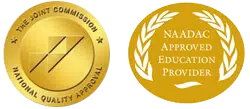As you successfully move through your 12-step recovery program with Baystate, there are methods and therapies incorporated in your personalized treatment that allow for the best possible results aiming for a lifelong recovery goal. Integrating treatment and therapy plans is the most effective way to combat addiction. One proven therapy that aids in addiction recovery is cognitive behavioral therapy (CBT). Incorporating this therapy into your 12 Step Program can produce positive recovery results. During your tailored treatment with us, we will determine if CBT may be right for your recovery journey.
First, what is Cognitive Behavioral Therapy (CBT)?
Cognitive Behavioral Therapy is a category of mental health treatment created in the 1960s by Dr. Aaron T. Beck. This type of therapy is based on core principles that include ideas such as:
- Mental health issues are based on unhealthy ways of thinking.
- Recurrent mental health issues are formed by learned patterns of negative thinking.
- Those suffering from mental health issues can learn coping mechanisms to relieve their symptoms and live a more fulfilling life.
CBT focuses on a person’s own thought process. Through CBT you examine your way of thinking to understand the unhealthy aspects of your current thoughts. By pulling back the layers of your thoughts and dissecting them individually you are able to recognize distortions and compare them to realistic thoughts that are within a healthier realm. Once your behavioral pattern is recognized, you move toward coping mechanisms that allow you to calm your mind, thinking more clearly and strategically and face your fears without worry.
What strategies are involved in CBT?
Through direct collaboration with your therapist an individualized game plan is created. Strategies may include:
- Discussing and facing your fears to overcome them more effectively.
- Role playing troubling or worrisome situations that you have or may face to understand the best way to handle them.
- Calming and relaxation techniques to quiet unhealthy thoughts.
- In and out of session techniques to cope with specific life scenarios.
- Guided self-discovery.
- Personal journaling of your thoughts, emotions and behaviors.
Remember that everyone faces different downfalls, so treatment may not include all of these strategies. CBT is very much an individualized therapy to aid in overcoming specific problems in your particular thought process and overall life.
What types of problems are discussed during CBT?
CBT is an extremely personal therapy method. It focuses on specific problems that you are faced with regularly in your life. Instead of focusing on what leads up to what you are currently facing, therapists focus on providing coping mechanisms based on the emotional and mental triggers you are experiencing now. Background history will be discussed, but an emphasis will be made on how to move forward from your current mental state.
How are the 12 Step Recovery Program and CBT related?
The ideologies of CBT are instilled through almost every step in the 12 step recovery program. The starting point of CBT and the 12 steps is to recognize you are facing problems that are out of your control. Both believe in the personal power to regain control of your life through specific coping mechanisms that enhance your overall physical and mental self-control. Both the program and the therapy are rooted in addressing specific issues head-on and establishing techniques to overcome and combat issues in the future.
Is CBT used only for addiction treatment?
No. CBT is used to treat a wide variety of mental health matters. In addition to addiction treatment, CBT has been found effective for anxiety, obsessive compulsive disorder, and depression.
As you travel down the road to recovery you will find techniques and therapies that work for your individual needs. Understanding proven therapies to combat addiction is essential to choose the programs, techniques and strategies that are right for your life as you cross the finish line to a life of sobriety. Incorporating CBT into your recovery plan may elevate your mental state, recovery process and overall quality of life. To learn more about CBT and determine if it is right for you, contact Baystate Recovery Center today.
Baystate Recovery Center, a clinically Infused 12-Step Treatment Center for Drug and Alcohol Addiction, was founded by two partners in addiction treatment services, John Checchi and Michael Wilson.



